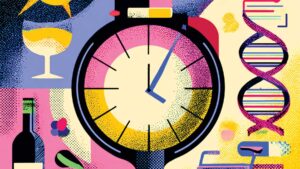Mendocino Voice mentioned Laura Mosqueda and alumna Laura Trejo in a column on how recent wildfires impacted older adults and how people can prepare for emergencies.
Wall Street Journal highlighted research by Andrei Irimia in an article on brain aging and dementia prevention.
Daily Mail quoted Valter Longo in a story discussing how a fasting-mimicking diet, involving severe calorie restriction, may not only prevent but potentially cure cancer by starving cancer cells of the nutrients they need to survive and multiply.
The Hindu ran an op-ed by Eunyoung Choi discussing her study, which found that extreme heat may silently accelerate biological aging at the molecular level, with effects comparable to smoking and heavy alcohol consumption.
Freakonomics podcast interviewed alumna Katy Fike, co-founder of Aging 2.0 and a managing partner of Generator Ventures, regarding the rapid aging of the U.S. population. The episode noted that Fike received her PhD in gerontology from USC.
Economic Times quoted John Tower in an article on science-backed tips for living to 100. Simple lifestyle choices, like eating well and getting regular exercise, are by far “the most effective and well-supported” longevity tactics — and “nothing else comes close,” he said.
Men’s Health quoted Valter Longo discussing the rise of super gyms like Love.Life and Equinox are redefining healthcare by integrating advanced medical services, diagnostics, and holistic wellness into high-end fitness memberships.
The Viva Longevity! podcast interviewed Valter Longo about eating for longevity and the Fasting-Mimicking Diet. “There is no evidence whatsoever that excess protein is good for you. Enough proteins, but not excess protein,” he said.
Medical Xpress featured a USC Leonard Davis study on how “biological stochasticity”—random events at the molecular and cellular level—might be one of the biggest, most overlooked drivers of differences in aging.
News Medical featured a USC Leonard Davis study on the connection between high levels of iron in the brain and increased cell damage in people who have both Down syndrome and Alzheimer’s disease. The study was also covered in Medical Xpress and Technology Networks.






